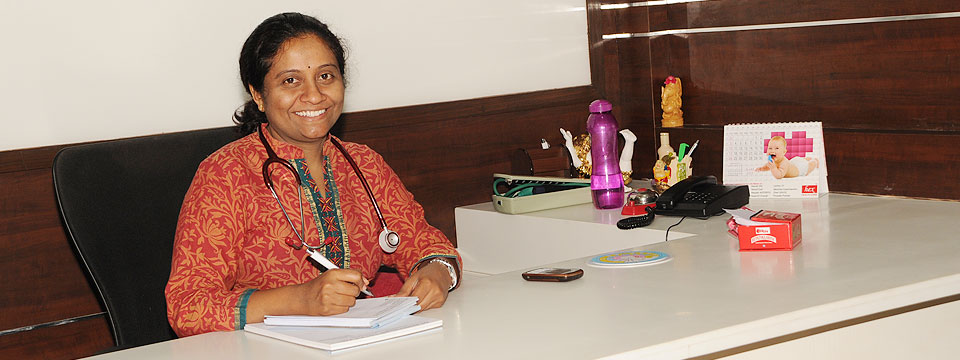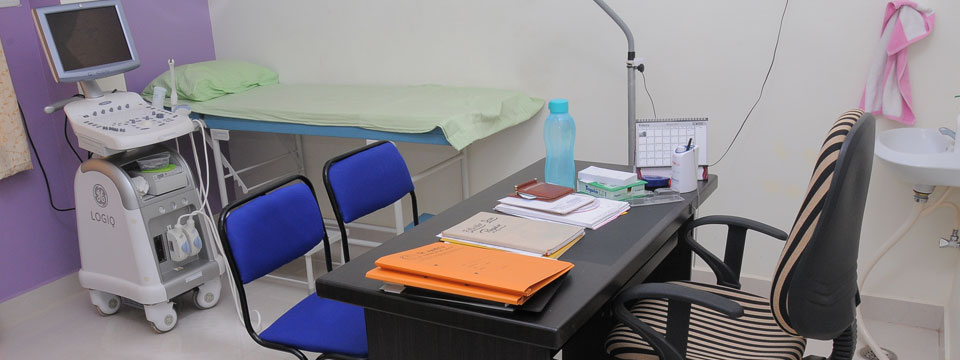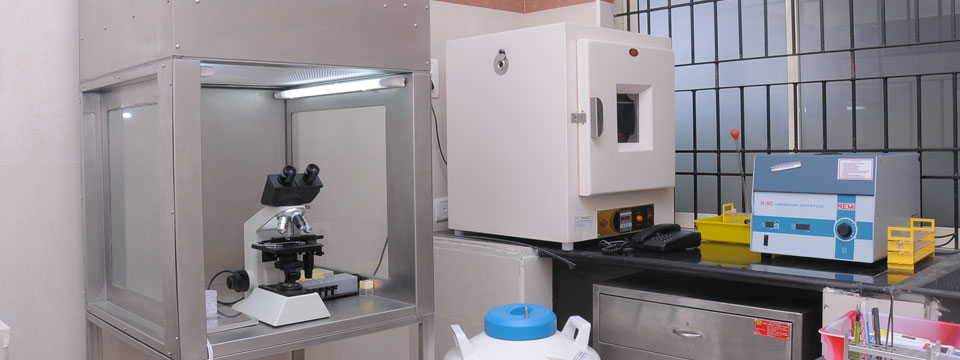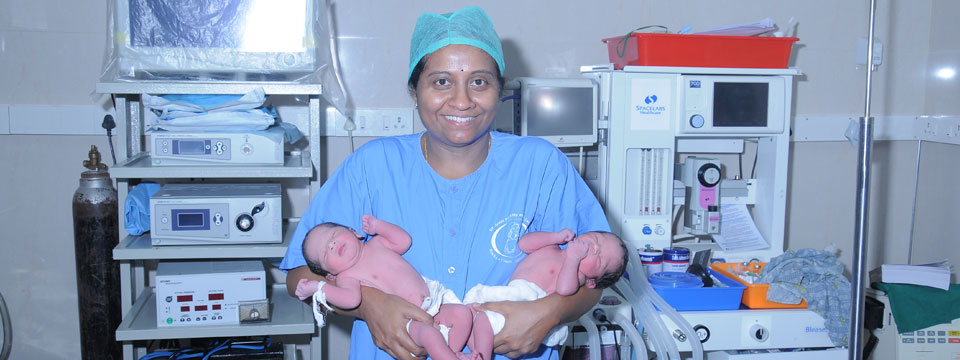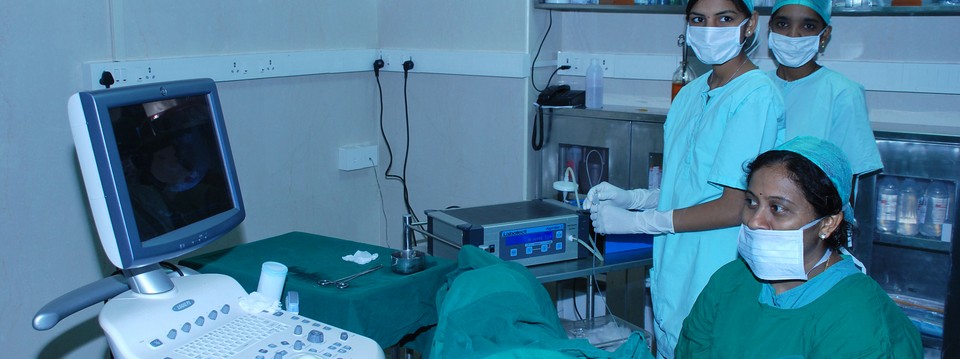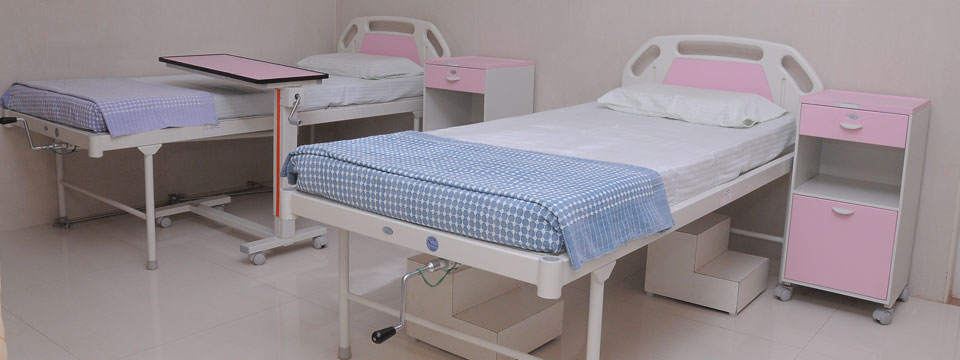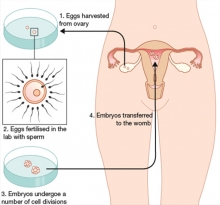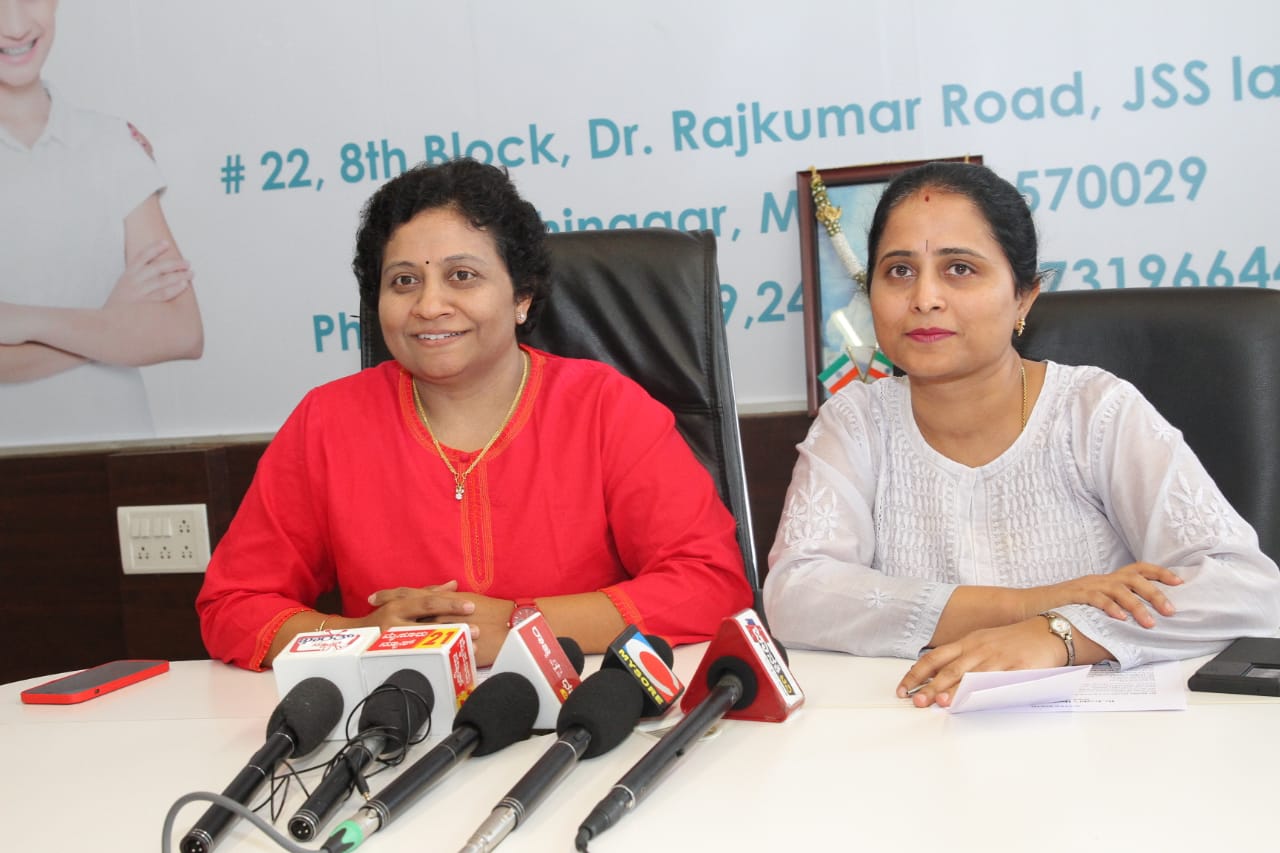What is IVF?
INVITRO FERTILIZATION is commonly called as Test Tube Baby is a method of simply uniting a man’s sperm to his female partner’s egg in the lab to produce embryos. Subsequently these embryos are transferred into the uterus through the cervix after 3 to 5 days of being in the incubator for normal development. This procedure is done only when there is poor sperm quality or quantity, obstruction between the egg and sperm, ovulation problems, and sperm –egg interaction problems. Usually these problems can prevent couples from having a baby naturally and IVF helps to solve this.
TIPS BEFORE IVF TREATMENT
- Visit and discuss to your doctor about your plans to become pregnant and the difficulties you have.
- It is good time to get out your bad habits like smoking, drinking alcohol.
- Seek out support from good minded people
- Try to relax .Really stress can inhibit your chance of pregnancy. Do what you find relaxing like reading books, watching TV, spend time with your family
- Modify your diet with healthy balanced food like fruits and vegetables,2liters of water atleast /day, pre natal supplements like folic acids.
BASIC REQUIRED TIME FOR IVF
Generally some preparation and testing is required in order to optimize IVF treatment. It is realistic to assume that you will need about 2 months to cover the topics below.
- Month 1: Testing Begin
- Month 2: Stimulation, egg retrieval, embryo transfer
BASIC SCREENING TEST
Before the treatment starts, you will be advised by your doctor to undergo certain tests like
- Lab work- This blood investigation is done on your cycle day 2.
- Partner’s Lab work: Semen analysis and few blood tests.
- Ultrasound -Scanning for uterus and ovaries.
- Infertility Counseling- During this period you will be explained about the treatment plan and the proposed medications, financial implications etc.
- Any Misc- If necessary, as per the doctor order.
CONSENT TO START PROCEDURE
Couples who have infertility have greater risks with pregnancy even if they conceive on their own without any treatment. Before the IVF treatment they will be issued with consent forms and information sheets about their treatment. We recommend that you read them carefully. Do not hesitate to ask for help from doctor or the clinic co ordinator if there is anything you cannot fully understand. You should give your consent after you are satisfied that you understand what you are agreeing to.
PLAN FOR IVF TREATMENT
- Treatment Plan
- Pituitary Down Regulation
- Gonadotrophins(SUPER OVULATION)
- HCG
- Egg Collection
- Embryo transfer
- Luteal phase support
- Pregnancy Test
Down regulation
The patient will be given Decapeptyl,/Lupraide/ Buserelin, GNRH injection during the 18th to 24th day of her menstrual period. The doctor will advise the day on which the patient has to ome to the clinic. If the doctors are satisfied, stimulation will be done to develop more number of ggs.This decapeptyl reduce the reproductive hormones to low level and control reproductive environment from outside. It is a long acting single dose injection which acts on the pituitary to reduce the production of FSH and LH hormones. The same effects can be achieved by giving daily injection of GNRH/Lupride/Busrelin.
Side effects :
Some times hot flashes may felt but it will soon disappear,
Head ache which is also transitory.
Super ovulation
Production of multiple eggs by high dose drug induced is known as super ovulation. The first step in super ovulation therapy is administering the medications to women either orally or by injection to increase the levels of both LH and FSH that increases the number of mature eggs produced by the ovaries. During this process ultrasound scan is done to assess the ovarian follicles. Blood samples are also taken to measure the LH and estrogen level. Trans vaginal ultrasound examination is also done. With these reports doctor can determine the exact date of egg harvesting.
After achieving the down regulation, hormonal injections (FSH or HMG) are given to stimulate the ovaries to produce more number of oocytes. The biggest advantage of these injections are they can be
given subcutaneously. Symptoms such as hot flushes, headaches, abdominal distention, discomfort, restlessness, mood changes may be noticed which usually last for a short period of time which is usually released soon after the follicular aspiration.
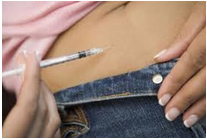
HCG Injection
The HCG injection ripens the developing eggs and initiates ovulation. If the follicular growth and the hormone levels are satisfactory, HCG injection is given usually in the night by 9p.m approximately 35-36 hours prior to the oocyte retrieval. Therefore the oocyte retrieval will be posted to the next day by 7 A.M.
EGG RETRIEVAL
INSTRUCTIONS FOR PRE EGG RETRIEVAL
- Do not eat or drink anything after midnight prior to the egg retrieval since you will be given general anesthesia.
- Kindly make sure to arrive without jewelry, nail polish, make up or contact lenses.
- When you are in the preparatory room, please try to empty your bladder.
- A mild sedative medication is given. Vaginal probe is introduced into the vagina and the eggs are retrieved with a needle inserted through the vaginal wall. You will be recovered soon from anesthesia. Nausea is very little.
- Your partner will be asked to provide a semen specimen before or immediately after the time of your retrieval.
- Two days abstinence is needed before egg retrieval for getting good quality semen sample for inseminating the oocytes.
- The patient can attend the normal work after the egg retrieval
- The eggs are aspirated along with follicular fluid into a test tube and hand over to the laboratory for examination.
- You will be kept for observation in the recovery room for about 1- 3 hours after the retrieval.
- Following your retrieval you may eat or drink when you feel well enough
- Sometimes when immature eggs are retrieved male factor fertility is present or if fertilization does not occur, your partner may be required to provide a second semen sample the day after retrieval.
It is normal to be nervous about the procedure, but most women go through it without much trouble or pain. Anesthesiologist will give a light sedative medication intravenously to help you feel relaxed, pain free and to make you sleep during the procedure.
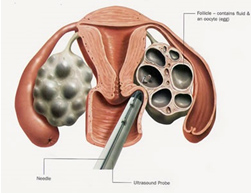
Once the medications take their effect, your doctor will use a transvaginal ultrasound to guide a needle through the back wall of your vagina, up to your ovaries. She will then use needle to aspirate the follicle, or gently suck the fluid and oocyte from the follicle into the test tube. There is one oocyte per follicle. These oocytes will be transferred to the embryology lab for fertilization. The number of oocytes retrieved varies but can usually be estimated before retrieval via ultrasound. The average number of oocytes is 8 to 15, with more than 95% of patients having at least one oocyte retrieved.
After the retrieval procedure, you'll be kept for a 2-3 hours to make sure all is well. Light spotting is common, as well as lower abdominal cramping, but most feel better in a day or so after the procedure.
POST-RETRIEVAL INSTRUCTIONS
After the retrieval you may feel some pelvic area tenderness and feel tired or sleepy as you have received sedative medications during the procedure. This medication may not be eliminated by your body for upto 24 hours so you may feel just not your normal self.
- You will also have some light vaginal spotting and this bleeding should be scant and may be red to brown in color.
- As long as you are not nauseated you can eat whatever you like. Avoid spicy food for atleast 24 hours.
- Antibiotic may be administered to avoid infection following the procedure.
CONTACT YOUR DOCTOR IMMIDIATELY IF ANY OF THE FOLLOWING OCCURS
- Excessive vaginal bleeding
- High grade fever (more than100.4° F ) that last for more than 2 hours
- Sharp and shooting pain
- Difficulty in urination or change in bowel activity
- Pain or burning urination
- Nausea, vomiting or diarrhoea.
- Abdominal swelling
- Unusual and increased pelvic area discomfort
- Unusual back pain
EGG FERTILIZATI
When you are recovering from egg retrieval the aspirated follicles will be searched for oocytes or eggs. Once the oocytes are found, they will be evaluated. If the eggs are not matured enough, they will be stimulated for maturity in the lab. If the eggs are over mature, fertilization may not be successful.
The sperms are separated from the seminal plasma and are washed to inseminate the eggs. The sperms are placed in culture dish with an oocyte in a separate dish containing IVF media.
The egg and the sperm are kept in the special incubator containing carbondioxide. After 12-24 hours they are inspected for signs of fertilization. After 48 hours of incubation the embryos will be ready to transfer onto the uterus.
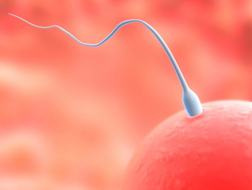
EMBRYO TRANSFER
What is embryo transfer?
It is one of the step in the IVF treatment in which one or two embryos are placed in the uterus of the female with the intent to establish a pregnancy.
During this process you will be informed about the time and date of embryo transfer. Embryo transfer is done on an outpatient basis. No anesthesia is used, some women may wish to have a mild sedative. The doctor exposes the cervix and one or more embryos suspended in a drop of culture medium are drawn into a transfer catheter and guide the tip of the loaded catheter through the cervix and deposits the fluid containing the embryos into the uterine cavity. This procedure is simple and it takes 10 to 20 minutes. Uterogestan tablets should be used through vagina till confirmation of the pregnancy, by the blood test.
LUTEAL SUPPORT
Progesterone tablets are given after the embryo transfer which are continued until the pregnancy test is done. These tablets should be introduced deeply into the vagina. They dissolve and absorption takes place.
PROCEDURE TO INSERT THE PROGESTERON TABLETS
- Wash your hands and dry them
- Lie down on your back
- Lift your legs with knees bent
- Insert capsule in the vagina
- Push the capsule inside the vagina with your fingers
- Lie down on your back and rest for some time.
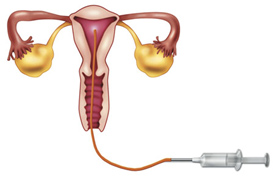
Every embryo does not become a baby. Some of the things you can do to maximize chance of success.
- No tub bath or swimming for 48 hours after the embryo transfer
- No intercourse or orgasms until the fetal heart beat is seen on ultrasound or the pregnancy test is negative
- No excessive physical activity such as jogging, aerobics or games
- No heavy lifting
- Do not take any non prescribed medications or other prescribed ones without the approval of the physician
- Keep yourself mentally distracted from tension of anxious waiting for 14 days. Make yourself busy in reading books, listening music etc.
The patient may have some vaginal spotting or bleeding prior to the pregnancy test.
She may be worried that her periods has already started , however it is recommended that the pregnancy test is done as it is the only way to confirm whether she is pregnant.
PREGNANCY TEST
About 9-12 days after the embryo transfer, most of the IVF clinics will offer you a blood test. This is usually a serum pregnancy test (more blood work and also will includes progesterone levels testing). The test may be repeated at the intervals between 2-5 days to check the rising levels of these hormones. HCG levels are the only way of monitoring early pregnancy every few days.
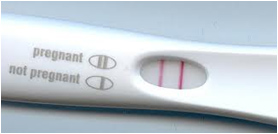
If the test is positive you may need to continue progesterone supplementation for several weeks. An ultrasound scan is usually performed about 5 weeks after embryo transfer or earlier. This scan will usually check if the pregnancy is normally located, appears normal and viable and also to view if there is more than one fetus. Further your doctor will also monitor for multiple pregnancy .If it is so your doctor may discuss for reducing the number of fetuses in a procedure called a “Multifetal pregnancy reduction”. This is done to increase the chances of having a healthy and successful pregnancy.
During IVF treatment miscarriage occurs up to 15% of the time in women under age 35, 25% in women upto 40-41 yrs and 35% of the time after age 42
SIGNIFICANT FACTORS FOR THE SUCCESS OF IVF PROCEDURE
- Skill and experience of the team and the availability of the treatment when you want it.
- Total number of embryos.
- Womens follicular stimulating hormones should rise sufficiently.
- Successful egg retrieval.
- Pre mature ovulation should not occur.
- Sperm should fertilize more than one egg.
- Fertilized egg should divide and grow well for final implantation in the uterus.
When IVF Treatment Fails
After the embryo transfer if the pregnancy test remains negative even after 12-14 days , you will be asked to stop the progesterone and you have to wait for your period to start. When your treatment fails it is really heart breaking but, you should keep in mind that having one cycle fail doesn’t mean that you won’t be successful again. You may be successful in the next cycle.
INTRA CYTOPLASMIC SPERM INJECTION (ICSI)
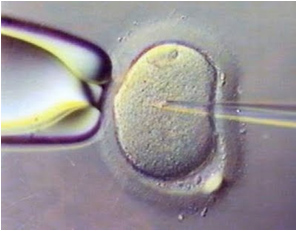
It is another method of IVF procedure to over come the male factor infertility in which single sperm is injected into center of the egg directly. The matures eggs from the female are aspirated through the vagina using ultrasound and are incubated under precise condition in the lab. The semen sample is prepared by centrifuging so that dead sperms and other debris are separated . A single live sperm is picked up in a glass needle and injected it directly into the egg.
This technique is developed to achieve fertilization for the couple who have had failure to fertilize in a previous IVF attempt and also to overcome many obstacles to fertilization and gives the couples more hope in achieving successful pregnancy.
TESTICULAR BIOPSY
Testicular Biopsy is used to collect sperm directly from the testis or from the tubes conveying sperm from the testis. This is a simple procedure done under local anesthesia for the patient suffering from obstructive azoospermia. These collected sperms are used for fertilization of oocytes. The extracted specimen can be preserved in liquid nitrogen for subsequent use.
ART OF IVF PROCEDURES
WE ALWAYS THINK FROM PATIENT SIDE
1.Is it necessary for us to admit as inpatient for IVF treatment?
It is not. You can get the treatment by visiting our centre from outside too.
2.Is there any side effects for IVF procedure?
Generally no side effects are seen in IVF treatment. But for few patients hormonal imbalance syndrome can occur which can be treated by proper adjustment of hormone dosage and treatment. The patient should inform us for any drug allergies.
3.How long I should wait to know that I am pregnant?
After the egg aspiration, blood test will be performed at about 13th day to confirm your pregnancy. It will confirmed by ultrasound scan on 30th to 40th day after the aspiration.
4.Can you give us guarantee for pregnancy?
To become pregnant it depends on various factors even after IVF treatment. Our centre staff will explain the success rate before the consent is taken..
5.When I can resume my normal routine activites?
we advice the patient to be in complete rest for full 24 hours following the pre embryo placement in the uterus. Excercises such as jogging, swimming etc are strictly avoided until pregnancy is confirmed. Other than that patient can return to her normal routine activities
6. How much time does the entire procedure take?
Approximately 2 months to cover the entire procedure. But to optimize the entire treatment some preparations and testing may be required.
7. Is there a possibility of multiple births in IVF procedure?
Yes, When multiple embryos are transferred 25% of pregnancy are twins with IVF procedure. Triplets are seen in approximately 2-3% of pregnancy.
8.Is it essential to get treated only at your clinic after the pregnancy?
No at all. But as your IVF doctor knows your entire history it is recommended to be in her monitor until 8-10 weeks.
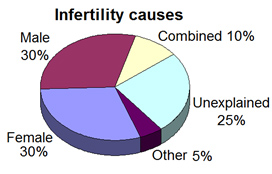
This is for your information that normal perfect couple have only 10-15% of chance to become a pregnant. However over a period of one year about 80% of the normal couple can become pregnant and the rest is classified as infertile. In IVF you cannot expect more than 30% success in a single cycle for 25-30 years aged women.
SIMPLE UNDERSTANDING FOR IVF PROCEDURE
Menstrual Cycle Day 21 ---------- USG (Uterine lining and length of uterus cavity) Trial Transfer
- Trial Transfer
- Inj. Decapaptyl given
- Periods starts
- E2 &LH, USG FSH injections (Day one of stimulation)
- Daily FSH
- Day 6-USG and blood test (Alternative days)
- Inj.HCG when follicular mature
- 36 weeks later egg retrieval
- Start progesterone from next day
- Pregnancy Test
- USG



